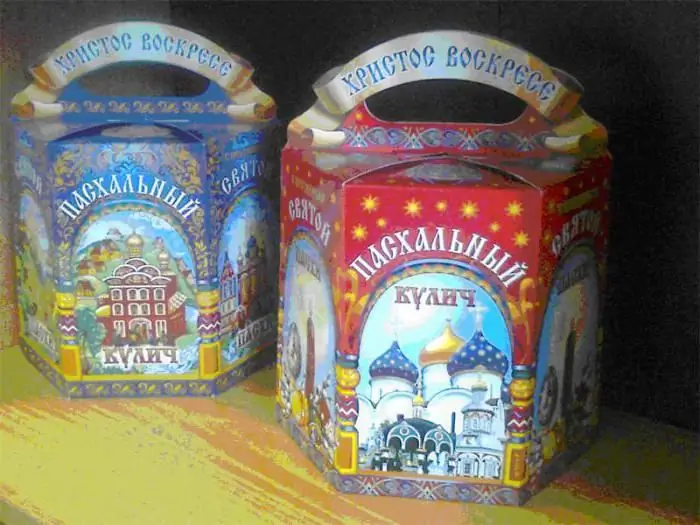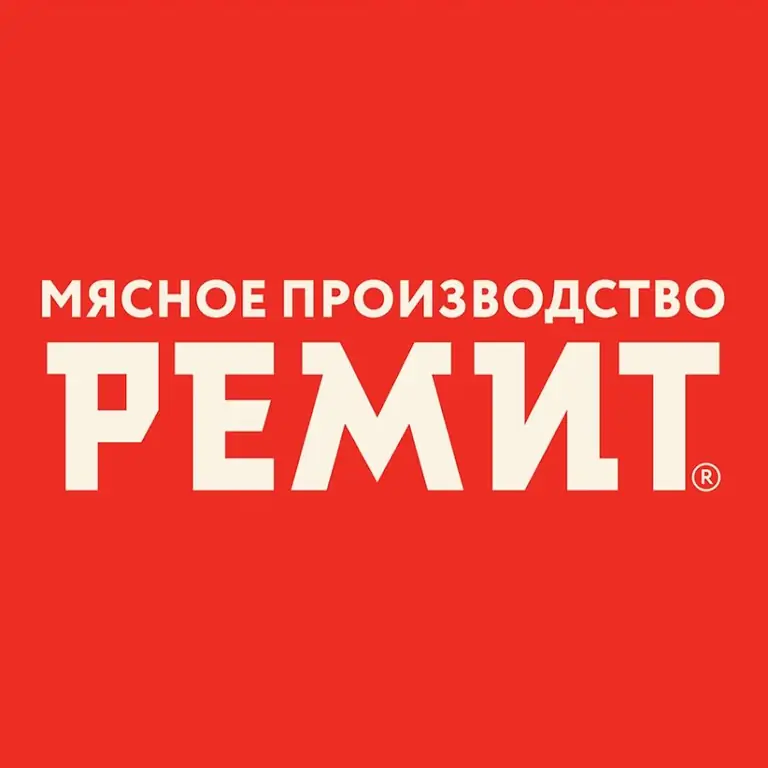2026 Author: Howard Calhoun | calhoun@techconfronts.com. Last modified: 2025-01-24 13:10:32
Peter I, having opened a window to Europe, gave impetus to the active development of Russian business and the development of Siberia. The innovator tsar generously distributed preferences, lands, factories to talented and resourceful entrepreneurs who appeared before the tsar's eyes from the very bottom. His Serene Highness Prince Menshikov is not the only one who received status, capital, and influence in high society. Artisans became aristocrats, skillfully doing their job, caring not only for their own pocket, but also for the power of the state.
The Demidov family
The Demidov dynasty made a huge contribution to the development of the Ural and Siberian regions, the development of industry, the mining industry, and mineral exploration. Having made millions of fortunes, each of the Demidovs made generous donations to the development of the arts, the construction of schools, shelters, and hospitals. The Demidov family began with a small Tula gunsmith Demid Grigoryevich Antufiev, who successfully presented his own guns to the tsar.

First Demidov Plant
Glory and honorswas brought to the family by Demid's eldest son, Nikita. He was distinguished by his ingenuity, entrepreneurial spirit, and great ability to work. It was from his submission that Peter I was able to assess the quality of the Tula weapons. The arithmetic was simple: the quality of the guns was not inferior to foreign ones, and they were much cheaper. Then the king ordered Nikita to be a supplier of weapons for the army. It happened during the Great Northern War. By his order, Peter I in 1701 ordered to give Demidov the ownership of the Streltsy lands in the Tula province, and to provide production, to give the land in the Shcheglovskaya notch, rich in coal.
The state was actively engaged in the construction of factories, the king quickly realized the benefits of cooperation between the state and private business. The Verkhotursky plant in the Urals, still under construction, was given to Nikita Demidov in 1702 with an obligation to pay the cost of construction to the treasury within 5 years and supply arms and metal to the army. So the famous Demidov factories began to be built and developed. The Demidovs ruled in the Urals for 250 years, until the 1917 revolution. After, like most noble families, they scattered around the world. The Italian branch of the family suffered the smallest family losses, while those who remained to live in Russia were shot or died of deprivation.

Industrial legacy of the Demidovs
The history of the Demidov factories is the triumphant march of the first wave of industrialization in Russia. Equipping their own enterprises, the Demidovs founded cities, developed infrastructure, built roads, populated the deaf Ural thickets with people, exploredminerals not only in the Ural Mountains, but also in Siberia, Crimea.
The first plant from the hands of the tsar was received in 1702, by 1727 there were already six industrial enterprises built by the Demidovs, all of them were focused on iron-smelting production:
- Shuralinsky.
- Byngovsky.
- Vyisky.
- Nizhny Tagil.
- Nizhnelayskiy.
- Verkhnetagilsky factories.
After the death of Nikita Demidov, his son Akinfiy began to expand the family business with great zeal, and by 1745 Demidov factories were built in different regions of the Urals and Siberia. In total, during its history, the Demidov dynasty owned 50 enterprises. The assets included iron and copper smelting plants, the main direction of production was weapons. To ensure the work of enterprises, mining was actively developing. But, like all entrepreneurs, the Demidovs were also engaged in related trades. This is the extraction and processing of semi-precious and precious stones from the Ural mines, the extraction of gold and silver.

Innovation
Demidov's factories, ore mines and other high-tech enterprises brought profit to the owners, making the Demidovs monopolists in some industries. The development, mining, smelting and transportation of copper did not give the desired profit, but it was not in the rules of the dynasty to close the business. And then Akinfiy Demidov found another "gold mine" of business - copper utensils.
Copper samovars were an expensive purchase for any family, they were delivered from afar. Situationchanged when Demidov's Nizhny Tagil plant began to produce a wide variety of metal utensils, including copper samovars. They were produced for making sbitnya, cooking dumplings, making hot teas based on fragrant herbs. Akinfiy Demidov was the first industrialist in Russia to establish mass production of metal utensils. Household items produced by Demidov were of high quality, but varied in execution. They were acquired by nobles and peasants, for everyone there was something affordable and necessary for beauty.
The Ural factories founded by the Demidovs continue their work today. For example, in the Sverdlovsk region there is a modern metallurgical enterprise, which is popularly called by the people in the old fashioned way - the Demidovsky plant. Until 1947, the Kamensk-Uralsky plant had a defense profile, later a small workshop for the production of dishes was opened here. Today CJSC is the leader in Russia in the production of aluminum cookware with non-stick coating.

Demidov aluminum cookware plant
The Demidovs built their factories to last, equipped them with the latest technology, chose the most convenient places, and developed infrastructure. Many of them are still called "Demidov Plant". Ware produced on the basis of the Demidov heritage in the city of Kamensk-Uralsky meets the requirements of modernity. According to consumer reviews, the products of modern Demidov production are convenient to use, practical and beautiful.
Aluminum utensils are an almost eternal purchase, they serve severalfamily generations. High-quality double boilers and juice cookers allow you to quickly and tasty cook everyday meals, make preparations for the winter. Also CJSC "Plant Demidovsky" launched a line of cookware with non-stick coating. Teflon-coated pots and pans are in high demand in Russia, and their production is growing steadily. Consumers are offered new models of safe and high-quality products.

Foundry
Demidov factories in the Urals were among the first to supply cast metal products not only in Russia, but also abroad. Demidov cast iron "Siberian sable" competed in quality with Swedish and English and often won the competition.
The Demidov foundry in Yekaterinburg is still famous today. The enterprise produces cast metal products for the drilling, oil and gas industries. Also, the modern "Demlit" is known for many monuments cast at the enterprise, fine workmanship iron fences. The possibilities of artistic and industrial casting from different metals at the plant are almost unlimited, many individual orders are carried out here.

Gold and silver
The Urals and Siberia are rich regions where the Demidovs were the first to explore and extract minerals for industrial purposes. Gold and silver crafts have been the object of attention of the dynasty since 1736, when deposits of precious metals were discovered in Altai. According to rumors, the initial development was carried out in secret from the sovereign's eyes. For a long time it was not possible to smelt pure silver. Only with the arrival of the Saxon masters at the plant was it possible to establish full-fledged production. The Altai mines in the Zmeiny Gory turned out to be very profitable. The Demidovs actively developed them, they also founded the city of Zmeinogorsk here.

Jewelcrafting today
Demidov jewelry factory is located in Barnaul. This is a modern large-scale production in the Altai Territory. For the manufacture of jewelry, precious metal of domestic design is used, and diamonds are only Yakut. Masters work on high-precision equipment of Italian and German production.
The number of manufactured jewelry allows the company to make wholesale deliveries around the world, but craftsmen are happy to take on piece work. At the request of the customer, jewelers will develop an individual design, select precious and semi-precious stones. Each product is a masterpiece of jewelry art. Demidov factories continue their life in new conditions, but retain the traditions of innovation and quality. Their products are competitive and in demand by the most demanding customers.

Demidov case
Demidov factories have been living their lives for a long time. Something is destroyed, something is irretrievably lost, but many enterprises continue to work and glorify their founders. The cities built by the Demidovs are now full of life and continue to grow and develop. Mineral explorations carried outdynasty, are still relevant.
Besides the practical side of life, the Demidovs did a lot of charity work. The amounts of their contributions at that time were huge and corresponded to the budget of a small state. Now there are fresh undertakings connected with the name of the Demidovs. For example, in 1991 the Demidov movement began its life, the Foundation was founded in their honor. The main idea of the movement is to serve the Fatherland following the example of an old family. The Foundation is engaged in the study of historical heritage, support for scientific research, arts, crafts, and culture in general. The Foundation also encourages projects in agriculture, the military-industrial complex and much more with its activities. As part of the activities, lectures are held, monuments are erected, parks are created, folk traditions are being revived.
Recommended:
Leading factories of Omsk and Omsk region: history and modernity

The factories of Omsk and the Omsk region occupy an important place in the Russian economy. The strategic location in the very center of the country allows local companies to establish business partnerships with East and West. The region has developed aircraft manufacturing, mechanical engineering, metallurgy, defense and electronic industries
Factory of bakery products "Dedovskiy Khleb": history, products, address

Dedovskiy Khleb bakery is known in the metropolitan area as a manufacturer of high quality bakery products. Loaves, "bricks", fragrant buns, Easter cakes, cakes, waffles are in constant demand among consumers. The key to success lies in the strict observance of GOSTs and technological standards laid down back in the 80s of the last century. Products are baked on modern equipment
REMIT Meat Processing Plant LLC: feedback from customers and employees, manufactured products and quality of meat products

REMIT reviews are of interest to customers who are considering options for cooperation with this company, and employees who expect to get a well-paid and stable job. In this article, we will talk about this meat processing plant, what products it produces, whether its quality corresponds to the declared one, what its employees and partners say about the enterprise
Radiozavod, Kyshtym: history of creation, products and economics of the enterprise, address and reviews

A lot can be said about radio. It is not easy to imagine modern life without a much-needed invention. Radio novelties are created in laboratories, and mass-produced at special enterprises, including at the sites of the radio factory in the city of Kyshtym, Chelyabinsk region. There are many such factories in Russia, but Kyshtymsky was more fortunate than the others. The enterprise at one time with dignity got out of the difficulties of perestroika and since then has been steadily heading for success
Dmitrovsky dairy plant: history, description, products, reviews of employees and customers

Parents from childhood teach us to dairy products. Over time, we can no longer imagine life without delicious glazed curds, fruit yoghurts or cottage cheese. But you need to be careful when choosing products, as manufacturers may be different

